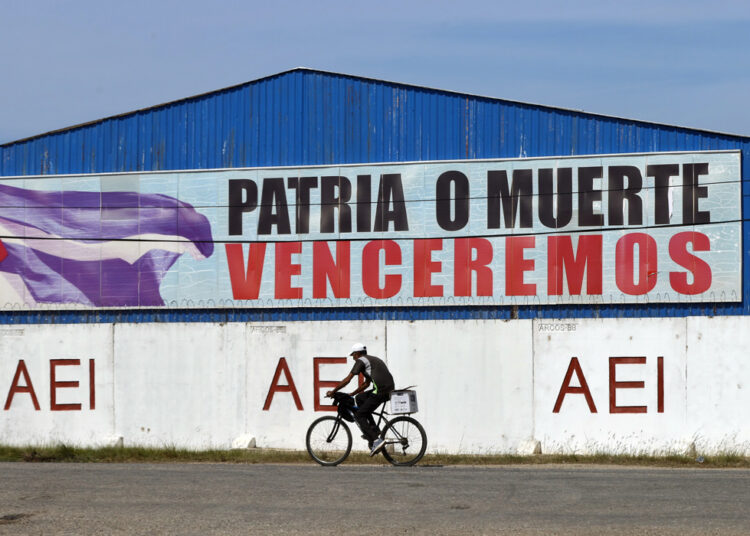Cuban authorities have informed several foreign companies that they will not be able to repatriate the foreign currency they hold in bank accounts in the country, which in some cases amounts to several million dollars, according to EFE news agency. The announcement has generated strong discontent among the affected companies, which in some cases have complained to their respective governments, according to business and diplomatic sources with knowledge of the situation who requested anonymity. “We completely disagree.
This isn’t the (Cuban) government’s money, but the companies’ money,” one businessman complained to EFE . He claims his account has been “frozen” and he can only use those funds for operations within the country. In exchange, Cuban authorities are offering those affected — in a series of individual meetings they call “interviews” — the opportunity to open a new type of foreign currency bank account on the island.

This is a very restricted pilot program — although some believe its use could be expanded to joint ventures — with which these companies could theoretically operate without limitations, because these accounting entries will be backed by monetary funds. However, these accounts will only accept new capital, as the capital in previous accounts cannot be transferred: only transfers from abroad will be accepted. Related Posts The Cuban Government reaffirms its bet on gold mining April 3, 2025 Brumpá: taxi agency led by Cuban mothers April 2, 2025 Cuba to enter carbon market March 30, 2025 Empty coffee pots: without customs, there is no country March 19, 2025 var jnews_module_321100_0_67faeaed0608f = {"header_icon":"","first_title":"Related Posts","second_title":"","url":"","header_type":"heading_1","header_background":"","header_secondary_background":"","header_text_color":"","header_line_color":"","header_accent_color":"","header_filter_category":"","header_filter_author":"","header_filter_tag":"","header_filter_text":"All","post_type":"post","content_type":"all","number_post":"4","post_offset":0,"unique_content":"disable","include_post":"","exclude_post":321100,"include_category":"13903,13904,13906,13905,13907","exclude_category":"","include_author":"","include_tag":"","exclude_tag":"","sort_by":"latest","date_format":"default","date_format_custom":"Y/m/d","force_normal_image_load":"","pagination_mode":"nextprev","pagination_nextprev_showtext":"","pagination_number_post":"4","pagination_scroll_limit":0,"boxed":"","boxed_shadow":"","el_id":"","el_class":"","scheme":"","column_width":"auto","title_color":"","accent_color":"","alt_color":"","excerpt_color":"","css":"","paged":1,"column_class":"jeg_col_2o3","class":"jnews_block_21"}; Some foreign companies that attract investment to the island are already beginning to open and operate these types of accounts, which are apparently already enjoyed by companies from GAESA, the business conglomerate of the Revolutionary Armed Forces (FAR).
It controls strategic sectors of the national economy, from tourism to telecommunications, and has retail establishments, banks, gas stations, and real estate agencies, among others. Some affected foreign companies see this measure as a painful but necessary step. They argue that the restrictions have been in place for years and are confident that with the new accounts they will be able to carry out international transactions or repatriate profits.
Many business owners, however, have received the offer with skepticism due to bad memories of previous experiences, such as the defunct convertible peso (CUC) or the virtual Freely Convertible Currency (MLC), and they doubt that the current conditions of these new accounts will be maintained in the future given the crisis in the country. Lack of liquidity The theoretical advantage of these new accounts is that they would, in principle, be immune to the serious liquidity problems of Cuban banks, a sector completely state-owned since the triumph of the revolution in 1959. The Cuban financial system is currently experiencing multiple difficulties, from disparate parallel exchange rates to undercapitalization and a lack of liquidity, both in Cuban pesos — rationed since last August — and in foreign currency, with varying degrees of discretionary limitations.
The causes, such as those of the severe economic crisis that the island has been mired in for more than five years, must be found in the combination of the pandemic, the tightening of U.S. sanctions — most notably its inclusion on the list of state sponsors of terrorism — and the implementation of failed economic and monetary policies.
Access to foreign currency has been severely limited since at least last year because the state is experiencing significant financial difficulties and is resorting to funds in the banking system to purchase basic goods abroad. The Cuban state holds a monopoly on foreign trade and currently imports around 80% of what is consumed on the island, with priority given to fuel and food, because domestic production has collapsed. In this context, Cuban authorities have initiated bancarization processes — to reduce the circulation of cash — and dollarization — of administrative procedures and state services — in order to attract a greater volume of foreign currency from the economy and be able to handle payments abroad.
OnCuba Staff Tags: cuban government featured foreign investment in Cuba.
Business

Cuban government blocks repatriation of foreign currency by foreign companies established in the country

In exchange, Cuban authorities are offering those affected the possibility of opening a new type of foreign currency bank account on the island, with which they could theoretically operate without limitations.La entrada Cuban government blocks repatriation of foreign currency by foreign companies established in the country se publicó primero en OnCubaNews English.















